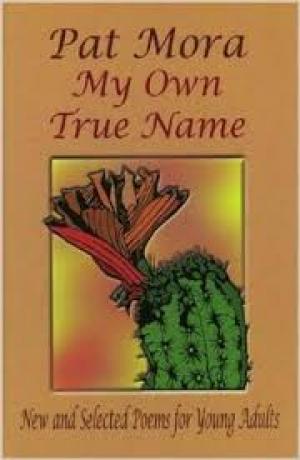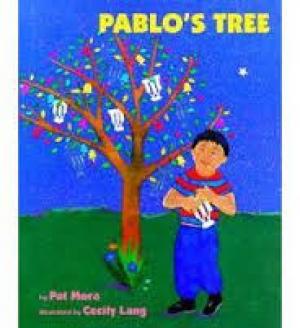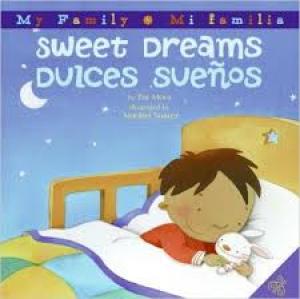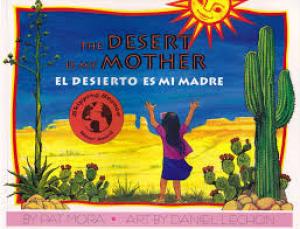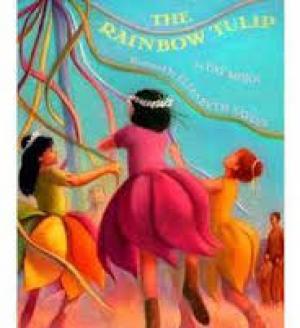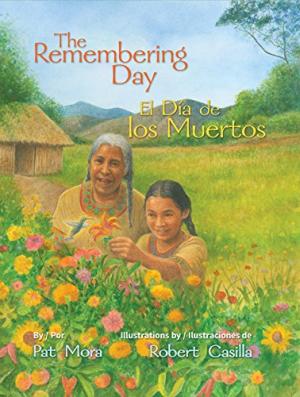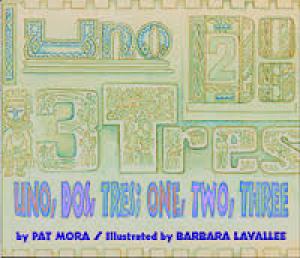Pat Mora is a mother, author, poet, and tireless literacy advocate. Her writings range from lyrical picture books to adult prose. Her most common themes are family, Mexican-American culture, and the desert. Since growing up along the border as a second-generation Mexican American, Mora has become a valuable translator between Hispanic and non-Hispanic audiences. One day she may address a room full of teachers and librarians about outreach to parents. The next day she may speak to parents in Spanish about ways they can better partner with their children’s school. Mora’s charming picture books also reach out across cultures. They are available in English and Spanish, but are often bilingual.
Books by This Author
My Own True Name: New And Selected Poems For Young Adults
"Mora has selected poems from her adult collections and added some new ones. She speaks of her own experience as a Latina in the Southwest, and of the experiences of those people whose lives have touched her own. Using the metaphor of a cactus, she has grouped the selections into three sections: 'Blooms' (of loves and joys), 'Thorns' (of hardships and sorrows), and 'Roots' (of family, wisdom, home, and strength)." — School Library Journal
Pablo's Tree
Pablo can't wait to visit his abeulito for his birthday. His grandfather decorates Pablo's special tree, planted when he was adopted. Pablo's special tree and its surprises are presented in rich illustrations and gentle text.
Sweet Dreams/Dulces sueños
It's bedtime, and Grandma has come to tuck everyone in. One by one, she kisses her grandchildren good-night in a loving refrain that reminds them of all the other friends who are closing their eyes and falling asleep. The soothing text and gentle drawings make this the perfect way to end a busy day. Bilingual text. This title is part of the My Family/Mi Familia series.
The Bakery Lady
Monica enjoys spending time at her grandparents' bakery not only because of sweet treats but because they have a special relationship. The story, told in both Spanish and English, is imbued with details about Mexican traditions.
The Desert Is My Mother
A girl with long, dark hair appreciates the surprisingly lush and colorful desert: "I say feed me,/She serves red prickly pears…" The poetic text in both Spanish and English is placed on different colors on one side of the page; crisp, full-color illustrations appear on the opposing page to celebrate this beautiful setting.
The Rainbow Tulip
Stella and her brothers speak Spanish at home but English at school. Being different is both scary and exciting. Stella learns this when she prepares for the school's celebration of May Day. She finds a way to honor her Mexican background by wearing a special skirt that is both alike yet different from the other girls'. Stella, like many children, can take pride in being part of two cultures. (In English sprinkled with Spanish).
The Remembering Day / El día de los muertos
Long, long, long ago, Bella and her grandmother Mamá Alma admired their vegetable garden. They liked gardening together. They grew sunflowers and lilies too, and chatted with lizards and hummingbirds. They walked around the flowers and vegetables holding hands, something they had done frequently since Bella was a baby. As her grandmother aged, Bella helped her to walk. "Every year, I need your help more and more," said Mamá Alma.
Tomás and the Library Lady
Tomás, child of migrant workers, visits the town library to find stories like the ones told by his grandfather. There he meets a librarian who provides him with a cool place, stories and books, and friendship before Tomás and his family move on to the next place. Handsomely illustrated in earth tones, this touching story was inspired by the real life of writer and educator, Tomás Rivera. Also available in Spanish.
Uno, Dos, Tres: One, Two, Three
Two girls go to a Mexican market to prepare for the celebration of their mother's birthday. As they gather what they need from one to ten, their excitement mounts. The rhyming, bilingual text combines with colorful, highly stylized illustrations to present a treat for eyes and ears.
Water Rolls, Water Rises/El agua rueda, el agua sube
Here is a poetic ode to the beauty of the natural world as expressed by the movement and moods of water on Earth. With every evocative verse, we visit one of fourteen different water landscapes and cultural areas around the world, each stunningly illustrated with a breathtaking view of a place of natural beauty and conveying a sense of the drama, joy, power, serenity, grandeur, or peacefulness of water.

